by Wallace Wyss –
I suspect enough time has gone by now that youngins reading this won’t know what “gray market” means. What it means is that, back in the ’70s, when the US Gum’mint came out with a lot of laws about seat belts and side door guard beams and yadda-yadda-yadda, a lot of foreign automakers were caught with their pants down so to speak. They couldn’t bring certain models into the US.
I remember first becoming aware of gray market shops when I passed a shop in Redondo Beach, CA that had at least six Ferrari Boxers parked here. Now I knew that Ferrari hadn’t bothered to make the Boxer conform to US law. Why bother? They were only going to make a few thousand so they could sell them in all the other countries where they met the law.
So of course conversion shops sprang up, devoted to helping those who had bought a non-conforming car meet the letter of the law. I remember that particular shop was doing a land office business until they got caught with a picture taken installing a side door guard beam. They had submitted a picture of the door with a cigarette butt on the floor. Only trouble was, a few SN later, on another car, they submitted pictures and there’s the same cigarette butt. So they got caught pretending each car has been fully converted.
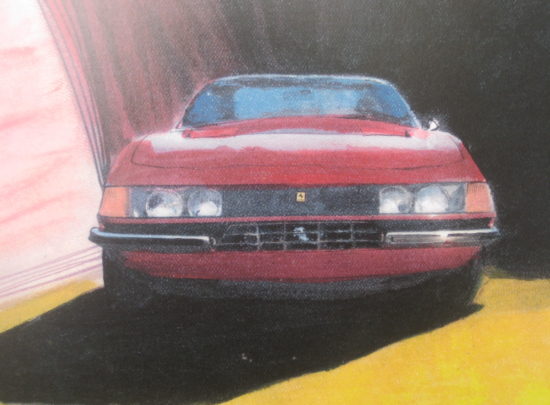
Since some Ferrari Daytonas that already arrived on US shores were “converted” to US specs by adding flip up lamps, it would be possible to convert a Euro spec car back to its original form, albeit expensive. Painting by Wallace Wyss
Well the whole gray market faded when Bill Gates, a mega tycoon in the tech field, wanted a Porsche 959 which at the time was high tech. But Porsche didn’t want to bother to make it conform to US law. They had lots of customers in Yurrip. Gates bought one but couldn’t legally drive it.
But Bill Gates got a piece of legislation written and passed that allowed for small numbers of non-confirming cars that are 25 years old or older to be brought in without having to confirm. I think it was a brilliant idea because auto technology wise, we as a nation were falling behind Europe by not knowing what advances were being made.
We Americans were in fact still being punished in the area of lighting long after those early regulations where foreign automakers with vastly improved headlights were not allowed to sell them Stateside. But, thanks to a protest from Toyota, that law has finally changed. According to Reuters “Vehicles on U.S. roads will now be allowed to use advanced headlights known as “adaptive driving beams” that could help prevent nighttime crashes, the U.S. National Highway Traffic Safety Administration (NHTSA) said. The agency acted in response to a petition filed by Toyota Motor Corp (7203.T) in 2013 to allow the lights. They automatically adjust the beams using additional sensors so they can provide more illumination without a glare to oncoming motorists.”
Anyway I think the irony of all this is that, now on the collector car market, a gray market car with say Euro headlights, like the first Ferrari 365GTB/4 Daytona, now is thought to be more interesting than the US-approved version. And why not–the Daytona with fixed lamps is the way God and Enzo intended the car to be–not with those pop-up headlights that must cost you a point or two of additional drag when up.
The Euro-model had a Plexiglas panel that featured vertical etchings between the fixed headlights on either side. What was a real crime against the Pininfarina designers was that Ferrari decided to make all future Daytonas have American-style headlamps, so they in effect “dumbed down” the design between chassis numbers 13800 and 14200.
As a car artist, I have made paintings of Daytonas with both fixed-in-place Euro headlamps and the flip-up US-approved lamps and I’m sure if I offer them in the same event the fixed-in-place Euro lamp version will be more in demand. After all, by once being forbidden, that makes them a little more exotic, having a tad more je nais se quoi…
Let us know what you think in the Comments.
THE AUTHOR: Wallace Wyss is a co-host of Autotalk, a radio show on cars broadcast from KUCR FM Riverside (88.3) each Thursday.
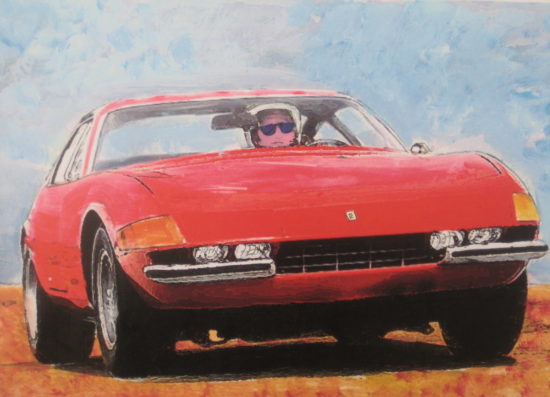
The flip-up lamps were Corvette-like and not oh-so-mysterious hidden-behind a veil like the Euro lamps. Painting by Wallace Wyss
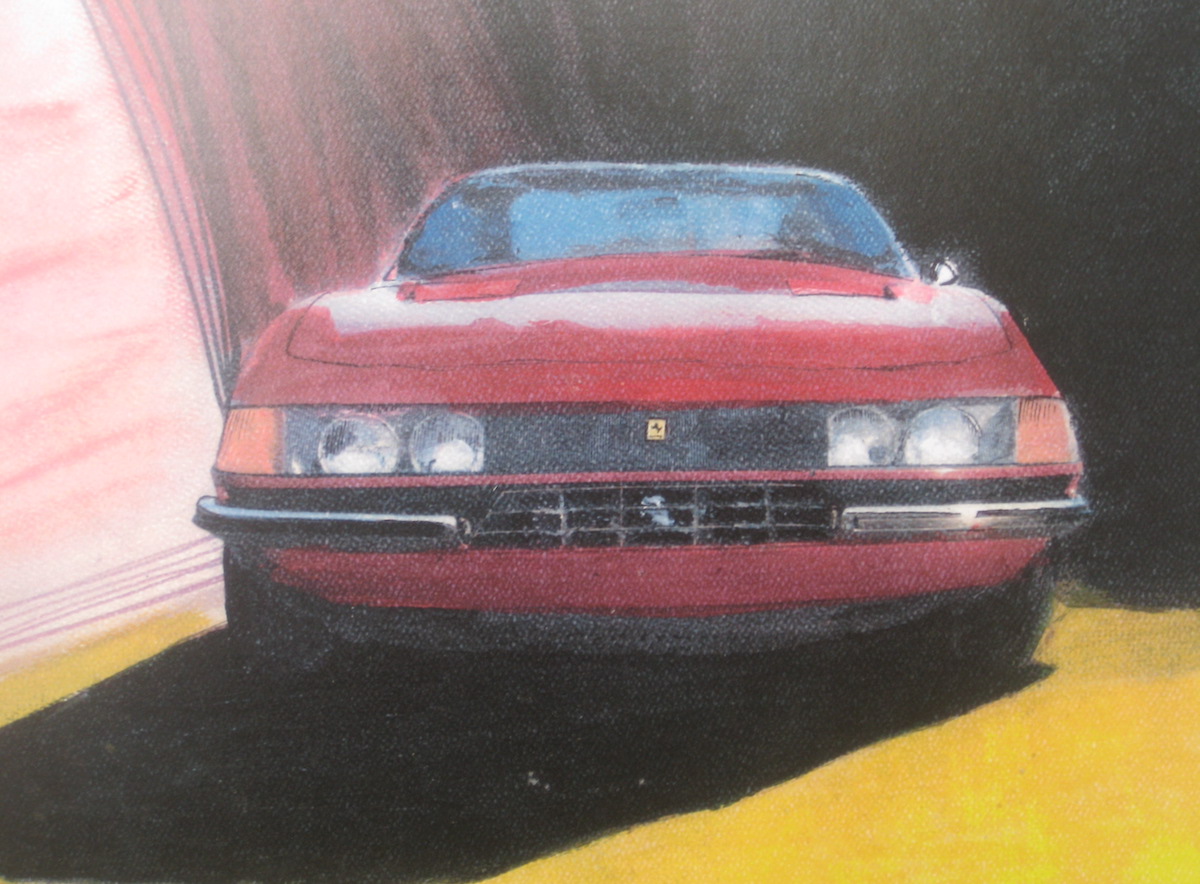
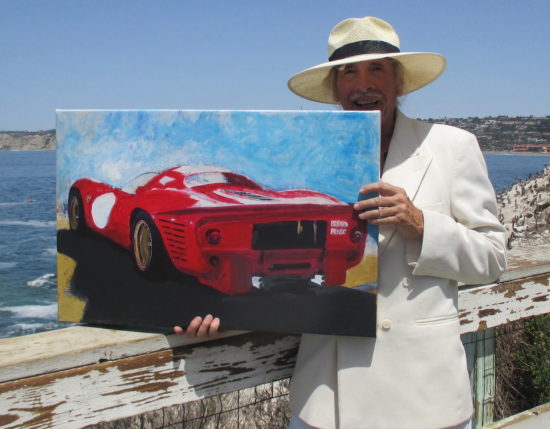
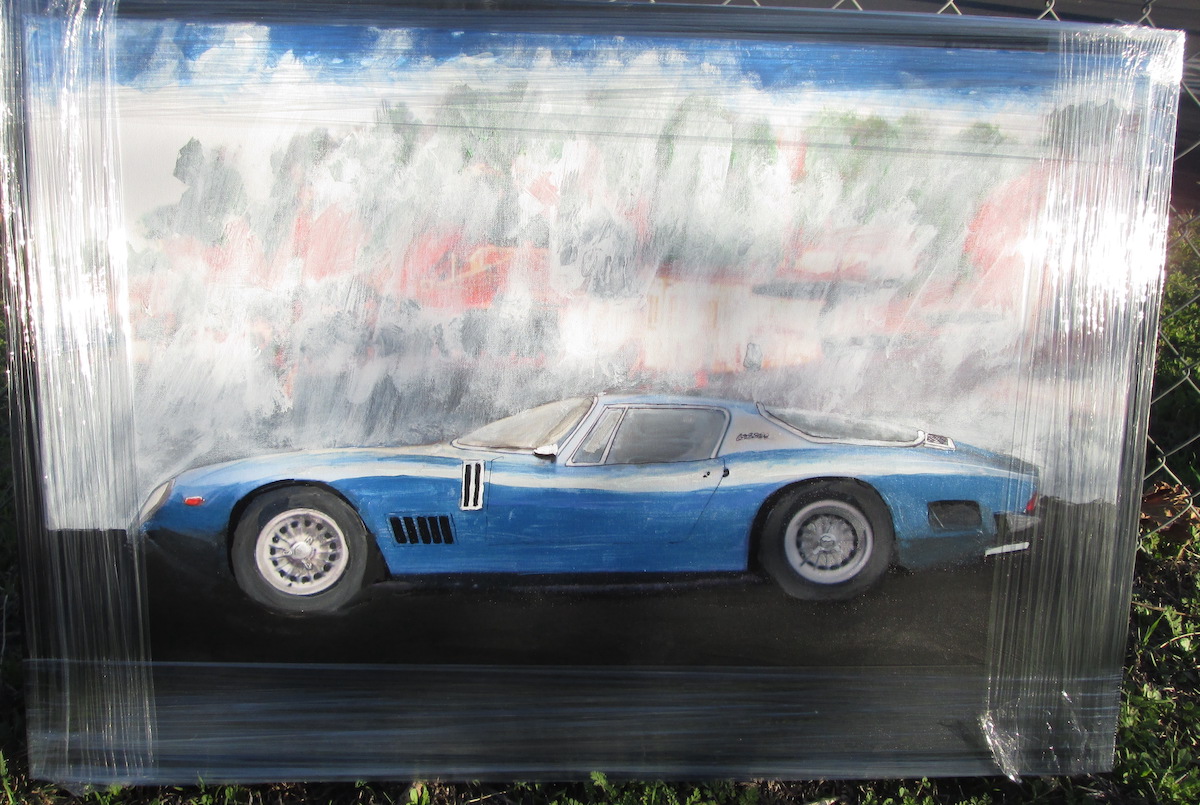

Wallace,
Great article as always. If you watch the film “Rainman”, the opening credits have Lamborghinis being lifted by cranes out of ship cargo holds to be brought over to Tom Cruise’s conversion shop to be “federalized” for the US market. Unfortunately, he never seems enough money from customer deposits to due the conversions and pay for EPA compliance testing.
Glenn in Brooklyn, NY